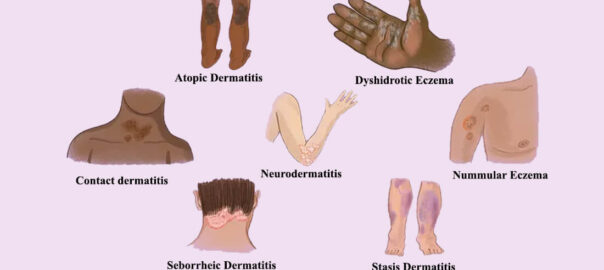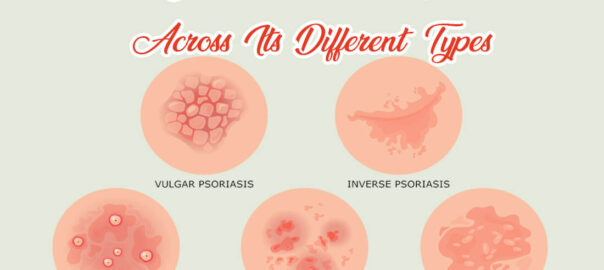
Image by Freepik
Psoriasis is a long-lasting skin disorder that affects millions of people across the globe. Its symptoms, including red, itchy, and scaly skin patches, can significantly impact a person’s quality of life. While modern medicine offers various treatments, Ayurveda, an ancient holistic healing system from India, has gained popularity for its natural and effective approach to managing psoriasis. This article explores the main causes, symptoms and effective ways to manage psoriasis, the era of the best medicine for psoriasis in Ayurveda
The Main Cause of Psoriasis
Understanding the root cause of psoriasis is essential for effective management. Psoriasis is a long-term autoimmune disorder that affects individuals’ skin and joints. The cause of psoriasis is a complex interplay among genetics, the immune system, and the environment. Let’s detail these factors to understand the underlying causes of psoriasis better.
1. Genetic factors:
Genetics play a significant role in the development of psoriasis. Family history is a strong indicator of the likelihood of developing the condition. Studies have shown that if one or both parents have psoriasis, the risk of their children developing the disease increases. We believe that certain genes associated with immune system function, inflammation, and regulation of skin cell growth contribute to the development of psoriasis.
One gene that has garnered attention in psoriasis research is the HLA-C gene, part of the human leukocyte antigen (HLA) system responsible for regulating the immune response. Variations in this gene are associated with an increased risk of psoriasis. However, these genetic variations don’t guarantee that an individual will develop psoriasis; they merely increase susceptibility.
2. Immune System Dysfunction:
The immune system significantly influences psoriasis development. In individuals with psoriasis, the immune system’s response becomes dysregulated, leading to inflammation and an accelerated skin cell turnover process. An overactive T-cell response characterizes this immune system dysfunction.
T-cells, a white blood cell, help fight infections and foreign substances. However, in psoriasis, these T-cells mistakenly target healthy skin cells as if they were pathogens. It triggers events that lead to inflammation and the rapid production of new skin cells. The excessive production of skin cells causes the characteristic red, scaly patches seen in psoriasis.
3. Environmental Triggers:
While genetics and immune system dysfunction lay the foundation for psoriasis development, certain environmental triggers can exacerbate or trigger flare-ups in genetically predisposed individuals. Common triggers include:
- Stress: Stress impacts the immune system and can worsen psoriasis symptoms. Stress hormones can trigger immune responses that lead to inflammation and overproduction of skin cells.
- Infections: Certain infections, particularly streptococcal infections like strep throat, have been linked to the onset or exacerbation of psoriasis. The condition can trigger an immune response that leads to flare-ups of psoriasis.
- Injury to the Skin: Trauma to the skin, such as cuts, burns, or even tattoos, can trigger the Koebner phenomenon, where psoriasis develops at the site of skin injury.
- Smoking and Alcohol: It is imperative to note that smoking and excessive alcohol consumption significantly raise the risk of developing and worsening psoriasis.
- Climate: Cold and dry weather conditions can exacerbate psoriasis symptoms, leading to skin dryness and increased irritation.
Signs and Symptoms of Psoriasis
Psoriasis is a chronic skin condition that unequivocally causes red, scaly patches on the skin. These symptoms can vary in severity and location on the body but with proper care & essential best medicine for psoriasis in ayurveda it can be easy to tackle the condition. Here are the signs and symptoms that may indicate the presence of psoriasis:
1. Red and Itchy Patches
One of the most characteristic signs of psoriasis is the presence of red, inflamed patches on the skin. These patches, often called “plaques,” are raised and may vary in size from small spots to larger areas. Increased inflammation leads to augmented blood flow, resulting in redness.
2. Silvery White Scales
The red patches in psoriasis are usually covered with thick, silvery-white scales. These scales result from the rapid turnover of skin cells in affected areas. Skin cells take about a month to mature and shed in healthy individuals. However, in psoriasis, this process accelerates, causing an accumulation of immature skin cells on the surface, which then form the characteristic scales.
3. Dry and Cracked Skin
The accumulation of scales on the skin can lead to dryness and cracking. The skin’s natural moisture balance is disrupted, causing discomfort and sometimes pain, especially in areas prone to movement, such as joints.
4. Itching and Irritation
The presence of scales and inflammation can cause intense itching and irritation. The itching sensation may become particularly bothersome, leading to scratching, which can exacerbate the condition and even cause the Koebner phenomenon, where new psoriatic lesions develop at the site of skin injury.
5. Inverse Psoriasis
Inverse psoriasis occurs in areas where skin folds or creases, such as the armpits, groin, under the breasts, and buttocks. The red patches may not have as much scaling in these regions, but they can be just as uncomfortable due to the moist environment and friction.
6. Pustular Psoriasis
Sometimes, psoriasis can manifest as bumps, which are small, pus-filled blisters. This type of psoriasis is called pustular psoriasis. The skin around these spots is often red and can be sensitive, causing discomfort. They may appear on localized body areas, such as the palms and soles (palmoplantar pustulosis), or cover larger areas (generalized pustular psoriasis).
7. Nail Changes
Psoriasis can affect nails, causing pitting, discolouration, thickening, and onycholysis. Nail changes can be painful and contribute to functional impairment.
8. Scalp Psoriasis
Scalp psoriasis is common and can lead to red, scaly patches on the scalp. It may resemble dandruff, but the scales in scalp psoriasis are often thicker and more adhesive. The itching and flaking can be particularly uncomfortable.
9. Joint Pain and Swelling: (Psoriatic Arthritis)
In some cases, psoriasis can lead to a condition called psoriatic arthritis. It involves joint pain, swelling, and stiffness, which can significantly affect a person’s mobility and overall well-being.
Symptoms and Effective Ways to Manage Psoriasis
Managing psoriasis requires a comprehensive approach addressing the physical symptoms and their underlying causes. Here are some common symptoms of psoriasis and effective ways to manage them, along with psoriasis best ayurvedic medicine:
- Dry Skin and Scaling: Ayurveda recommends herbal remedies and natural oils to moisturize the skin and reduce dryness. Neem oil, coconut oil, and aloe-vera are known for their hydrating and soothing properties. Massaging these oils onto the affected areas can help alleviate dryness and scaling.
- Inflammation and Itchiness: Turmeric, a spice in Ayurveda, contains curcumin with anti-inflammatory and antioxidant properties. Applying a paste made of turmeric to affected areas can reduce inflammation and itching.
- Immune System Modulation: Ayurveda focuses on balancing the body’s internal energies or doshas. Ayurvedic practitioners believe that certain herbs like guduchi (Tinospora cordifolia) and ashwagandha (Withania somnifera) enhance the body’s immunity and reduce the autoimmune response responsible for psoriasis.
- Diet and Lifestyle: Ayurveda emphasizes the significance of maintaining a balanced and nourishing diet while prioritizing consuming wholesome and natural foods. Incorporating cooling and anti-inflammatory foods, such as leafy greens, fruits, and whole grains, along with best medicine for psoriasis in ayurveda can aid in managing psoriasis symptoms. Avoiding trigger foods like spicy, oily, and processed foods is also recommended.
- Stress Management: Stress is known to exacerbate psoriasis symptoms. Ayurveda promotes relaxation techniques like meditation, yoga, and deep breathing to reduce stress. These practices have a positive impact on mental well-being and can contribute to the overall improvement of psoriasis symptoms.
Conclusion
Psoriasis is a complicated condition that demands a comprehensive approach to management. It is affected by genetic predisposition, immune system dysfunction, and environmental triggers. Psoriasis can drastically impact an individual’s quality of life, affecting their physical, emotional, and social well-being. Early signs and proper management can help alleviate symptoms and improve overall well-being. By understanding the main causes, recognizing the symptoms, and incorporating psoriasis treatment in ayurvedic medicine and practices into your routine, you can take proactive steps toward managing psoriasis and improving your experience with healthy skin.










